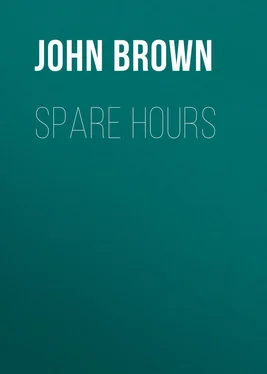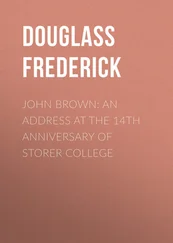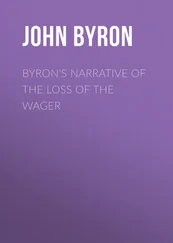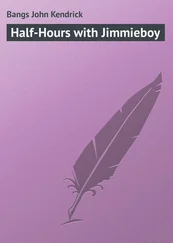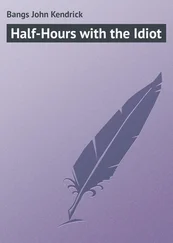John Brown - Spare Hours
Здесь есть возможность читать онлайн «John Brown - Spare Hours» — ознакомительный отрывок электронной книги совершенно бесплатно, а после прочтения отрывка купить полную версию. В некоторых случаях можно слушать аудио, скачать через торрент в формате fb2 и присутствует краткое содержание. ISBN: , Жанр: foreign_antique, foreign_prose, на английском языке. Описание произведения, (предисловие) а так же отзывы посетителей доступны на портале библиотеки ЛибКат.
- Название:Spare Hours
- Автор:
- Жанр:
- Год:неизвестен
- ISBN:http://www.gutenberg.org/ebooks/27153
- Рейтинг книги:4 / 5. Голосов: 1
-
Избранное:Добавить в избранное
- Отзывы:
-
Ваша оценка:
- 80
- 1
- 2
- 3
- 4
- 5
Spare Hours: краткое содержание, описание и аннотация
Предлагаем к чтению аннотацию, описание, краткое содержание или предисловие (зависит от того, что написал сам автор книги «Spare Hours»). Если вы не нашли необходимую информацию о книге — напишите в комментариях, мы постараемся отыскать её.
Spare Hours — читать онлайн ознакомительный отрывок
Ниже представлен текст книги, разбитый по страницам. Система сохранения места последней прочитанной страницы, позволяет с удобством читать онлайн бесплатно книгу «Spare Hours», без необходимости каждый раз заново искать на чём Вы остановились. Поставьте закладку, и сможете в любой момент перейти на страницу, на которой закончили чтение.
Интервал:
Закладка:
We must not only have wisdom, which is knowledge assimilated and made our own, but we must, as the Lancashire men say and do, have wit to use it . We may carry a nugget of gold in our pocket, or a £100 bank-note, but unless we can get it changed , it is of little use, and we must moreover have the coin of the country we are in. This want of presence of mind, and having your wits about you, is as fatal to a surgeon as to a general.
That wise little man, Dr. Henry Marshall, little in body but not little in mind, in brain, and in worth, used to give an instance of this. A young, well-educated surgeon, attached to a regiment quartered at Musselburgh, went out professionally with two officers who were in search of “satisfaction.” One fell shot in the thigh, and in half an hour after he was found dead, the surgeon kneeling pale and grim over him, with his two thumbs sunk in his thigh below the wound, the grass steeped in blood. If he had put them two inches higher, or extemporized a tourniquet with his sash and the pistol’s ramrod and a stone, he might have saved his friend’s life and his own – for he shot himself that night.
Here is another. Robbie Watson, whom I now see walking mildly about the streets – having taken to coal – was driver of the Dumfries coach by Biggar. One day he had changed horses, and was starting down a steep hill, with an acute turn at the foot, when he found his wheelers, two new horses, utterly ignorant of backing. They got furious, and we outside got alarmed. Robbie made an attempt to pull up, and then with an odd smile took his whip, gathered up his reins, and lashed the entire four into a gallop. If we had not seen his face we would have thought him a maniac; he kept them well together, and shot down like an arrow, as far as we could see to certain destruction. Right in front at the turn was a stout gate into a field, shut; he drove them straight at that, and through we went, the gate broken into shivers, and we finding ourselves safe, and the very horses enjoying the joke. I remember we emptied our pockets into Robbie’s hat, which he had taken off to wipe his head. Now, in a few seconds all this must have passed through his head – “that horse is not a wheeler, nor that one either; we’ll come to mischief; there’s the gate; yes, I’ll do it.” And he did it; but then he had to do it with his might; he had to make it impossible for his four horses to do anything but toss the gate before them.
Here is another case. Dr. Reid of Peebles, long famous in the end of last and beginning of this century, as the Doctor of Tweeddale; a man of great force of character, and a true Philip, a lover of horses, saw one Fair day a black horse, entire, thoroughbred. The groom asked a low price, and would answer no questions. At the close of the fair the doctor bought him, amid the derision of his friends. Next morning he rode him up Tweed, came home after a long round, and had never been better carried. This went on for some weeks; the fine creature was without a fault. One Sunday morning, he was posting up by Neidpath at a great pace, the country people trooping into the town to church. Opposite the fine old castle, the thorough-bred stood stock still, and it needed all the doctor’s horsemanship to counteract the law of projectiles; he did, and sat still, and not only gave no sign of urging the horse, but rather intimated that it was his particular desire that he should stop. He sat there a full hour, his friends making an excellent joke of it, and he declining, of course, all interference. At the end of the hour, the Black Duke, as he was called, turned one ear forward, then another, looked aside, shook himself, and moved on, his master intimating that this was exactly what he wished; and from that day till his death, some fifteen years after, never did these two friends allude to this little circumstance, and it was never repeated; though it turned out that he had killed his two men previously. The doctor must have, when he got him, said to himself, “if he is not stolen there is a reason for his paltry price,” and he would go over all the possibilities. So that when he stood still, he would say, “Ah, this is it;” but then he saw this at once, and lost no time, and did nothing. Had he given the horse one dig with his spurs, or one cut with his whip, or an impatient jerk with his bit, the case would have failed. When a colt it had been brutally used, and being nervous, it lost its judgment, poor thing, and lost its presence of mind.
One more instance of nearness of the Νοῦς. A lady was in front of her lawn with her children, when a mad dog made his appearance, pursued by the peasants. What did she do? What would you have done? Shut your eyes and think. She went straight to the dog, received its head in her thick stuff gown, between her knees, and muffling it up, held it with all her might till the men came up. No one was hurt. Of course, she fainted after it was all right.
We all know (but why should we not know again?) the story of the Grecian mother who saw her child sporting on the edge of the bridge. She knew that a cry would startle it over into the raging stream – she came gently near, and opening her bosom allured the little scapegrace.
I once saw a great surgeon, after settling a particular procedure as to a life-and-death operation, as a general settles his order of battle. He began his work, and at the second cut altered the entire conduct of the operation. No one not in the secret could have told this: not a moment’s pause, not a quiver of the face, not a look of doubt. This is the same master power in man, which makes the difference between Sir John Moore and Sir John Cope.
Mrs. Major Robertson, a woman of slight make, great beauty, and remarkable energy, courage, and sense (she told me the story herself), on going up to her bedroom at night – there being no one in the house but a servant girl, in the ground floor – saw a portion of a man’s foot projecting from under the bed. She gave no cry of alarm, but shut the door as usual, set down her candle, and began as if to undress, when she said aloud to herself, with an impatient tone and gesture, “I’ve forgotten that key again, I declare;” and leaving the candle burning, and the door open, she went down-stairs, got the watchman, and secured the proprietor of the foot, which had not moved an inch. How many women or men could have done, or rather been all this!
MY FATHER’S MEMOIR.
A LETTER TO JOHN CAIRNS, D. D
“I praised the dead which are already dead, more than the living which are yet alive.”
MY FATHER’S MEMOIR.
LETTER TO JOHN CAIRNS, D. D
My dear Friend, – When, at the urgent request of his trustees and family, and in accordance with what I believe was his own wish, you undertook my father’s Memoir, it was in a measure on the understanding that I would furnish you with some domestic and personal details. This I hoped to have done but was unable.
Though convinced more than ever how little my hand is needed, I will now endeavor to fulfil my promise. Before doing so, however, you must permit me to express our deep gratitude to you for this crowning proof of your regard for him
“Without whose life we had not been;”
to whom for many years you habitually wrote as “My father,” and one of whose best blessings, when he was “such an one as Paul the aged,” was to know that you were to him “mine own son in the gospel.”
With regard to the manner in which you have done this last kindness to the dead, I can say nothing more expressive of our feelings, and, I am sure, nothing more gratifying to you, than that the record you have given of my father’s life, and of the series of great public questions in which he took part, is done in the way which would have been most pleasing to himself – that which, with his passionate love of truth and liberty, his relish for concentrated, just thought and expression, and his love of being loved, he would have most desired, in any one speaking of him after he was gone. He would, I doubt not, say, as one said to a great painter, on looking at his portrait, “It is certainly like, but it is much better looking;” and you might well reply as did the painter, “It is the truth, told lovingly” – and all the more true that it is so told. You have, indeed, been enabled to speak the truth, or as the Greek has it, ἀληθευεῖν ἐν ἀγάπη – to truth it in love.
Читать дальшеИнтервал:
Закладка:
Похожие книги на «Spare Hours»
Представляем Вашему вниманию похожие книги на «Spare Hours» списком для выбора. Мы отобрали схожую по названию и смыслу литературу в надежде предоставить читателям больше вариантов отыскать новые, интересные, ещё непрочитанные произведения.
Обсуждение, отзывы о книге «Spare Hours» и просто собственные мнения читателей. Оставьте ваши комментарии, напишите, что Вы думаете о произведении, его смысле или главных героях. Укажите что конкретно понравилось, а что нет, и почему Вы так считаете.
